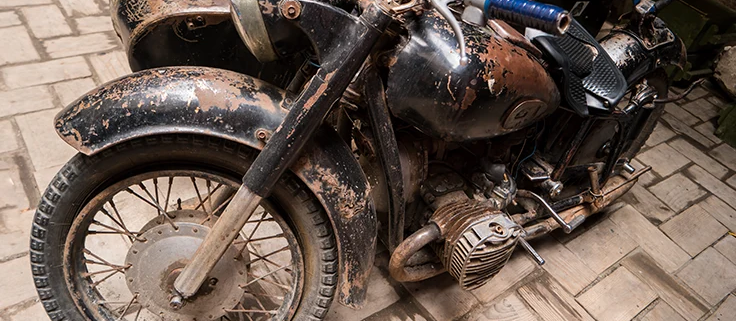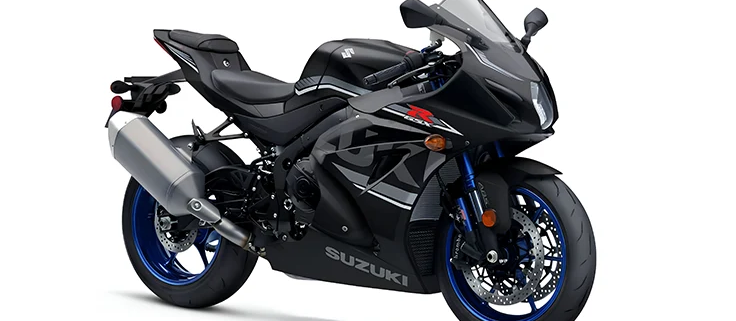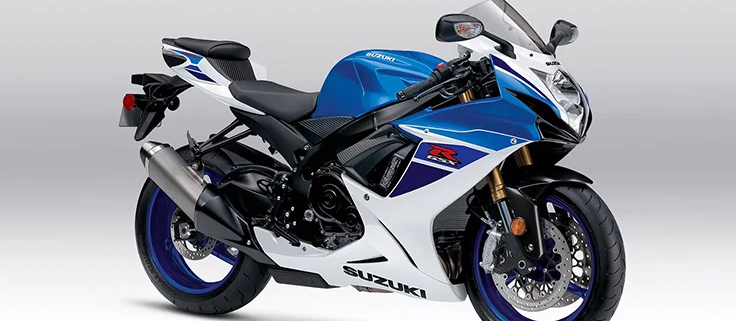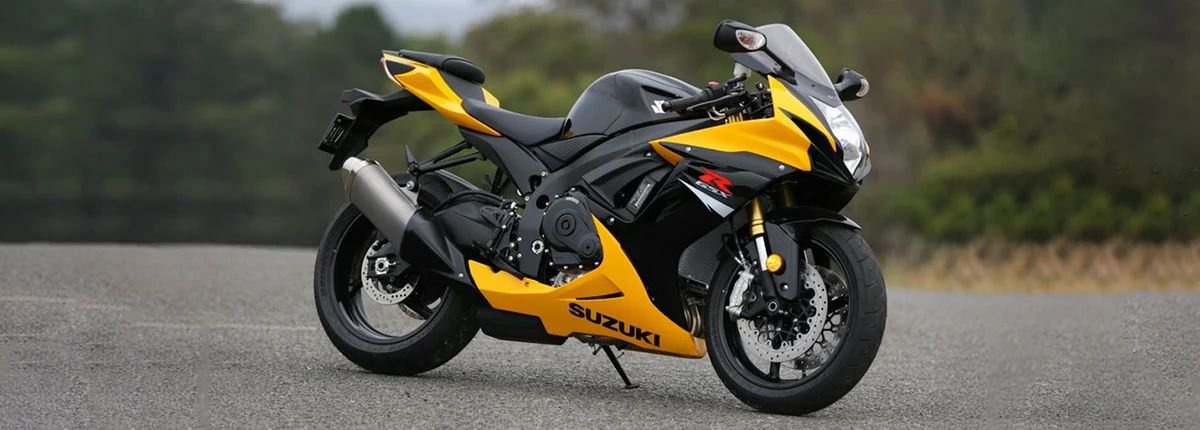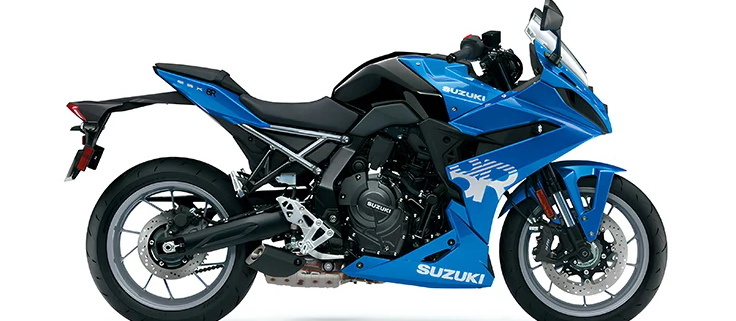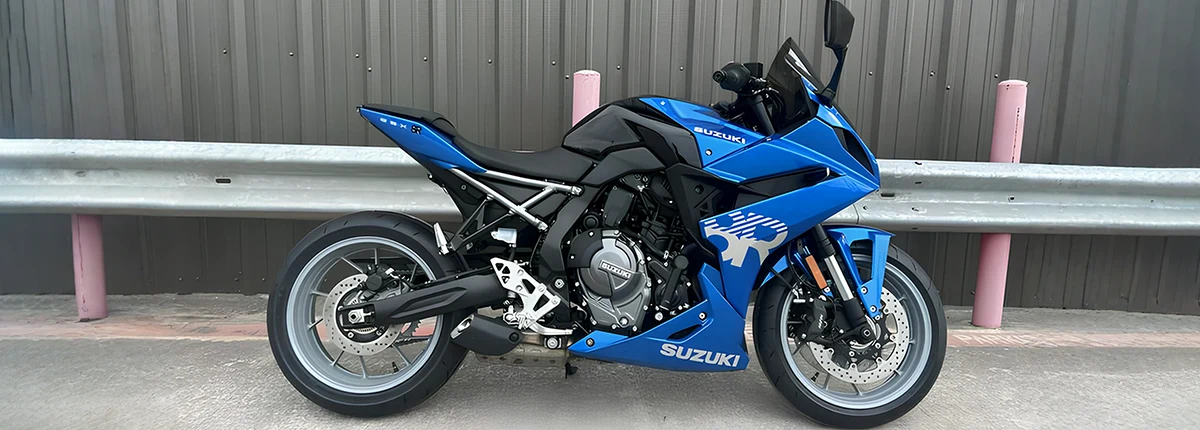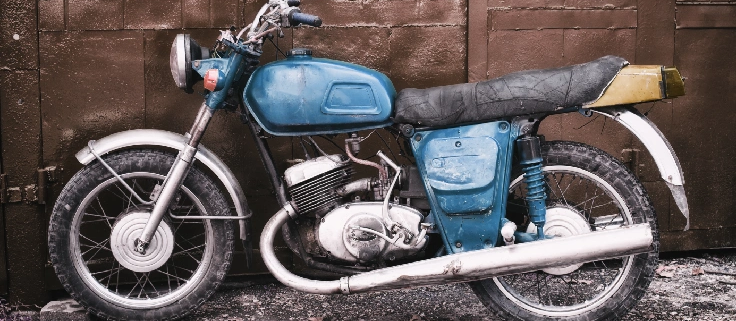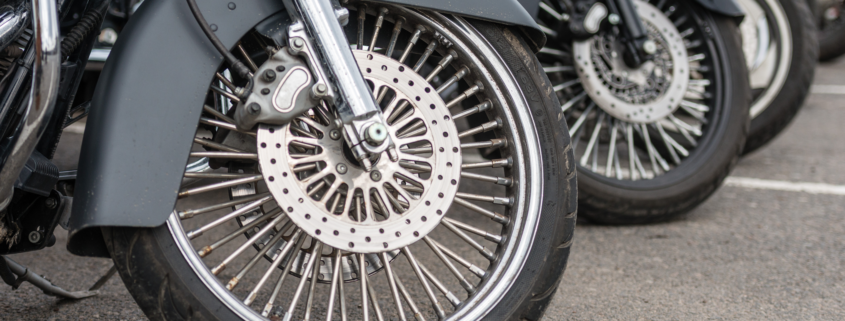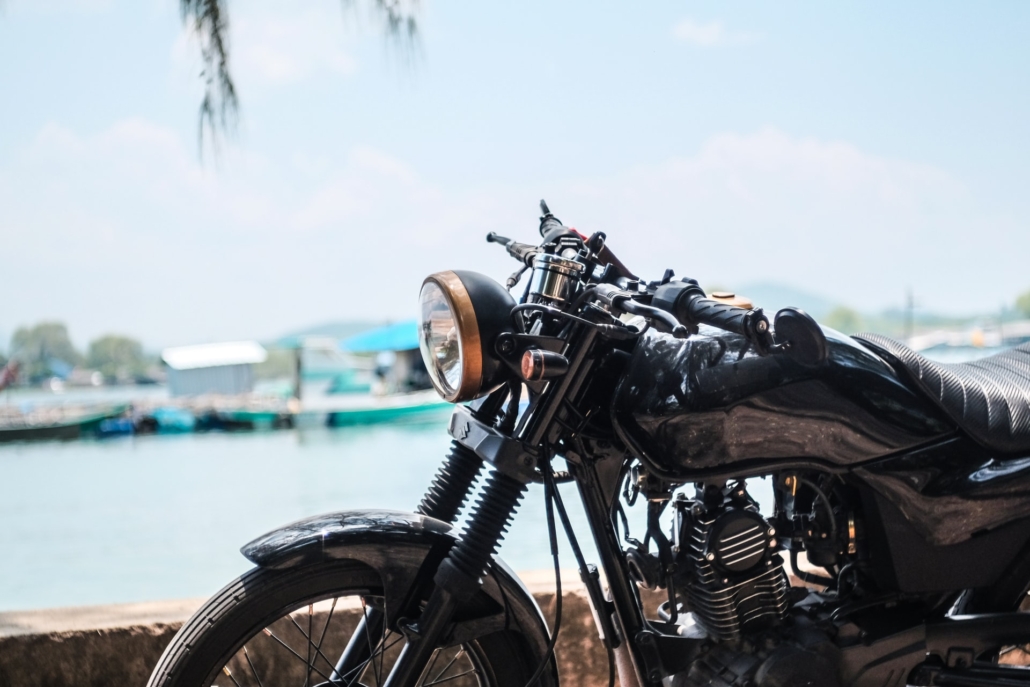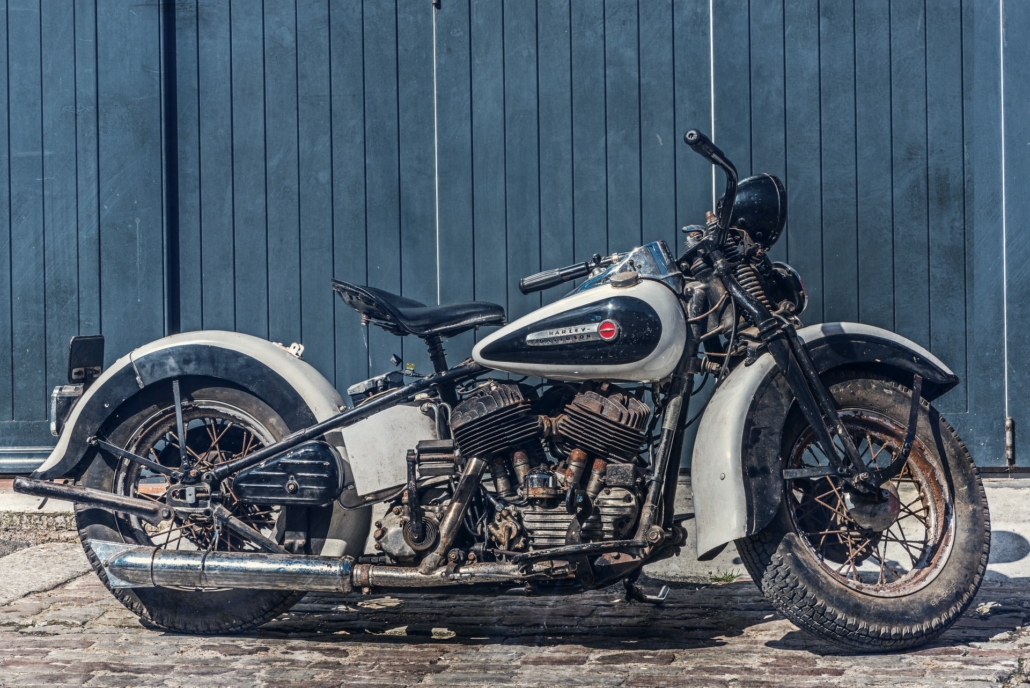Suzuki’s GSX series (including the famous GSX-R sportbikes and newer GSX-S models) are high-performance motorcycles prized by enthusiasts. The GSX-R750, for example, has been in production since 1984, and its bigger sibling, the GSX-R1000, debuted in 2001 with a ~1000cc inline-four engine. But as these bikes age or are ridden hard, they can develop issues (engine wear, rust, worn tires, etc.) or suffer accidents.
A Suzuki GSX can be valuable to salvage yards and rebuilders even after a crash. Common problems on older bikes include leaky fuel tanks and old tires, and even high-end bikes can be damaged in accidents, from bent forks to seized engines. In short, a wrecked or non-running Suzuki GSX still has parts worth money, and specialized buyers like The Bike Buyers will pay cash for them.
Common Issues on Older or Crash-Damaged GSX Bikes
Used GSX motorcycles – especially sportbikes – often show wear from hard riding. Engine seals can dry out, chain and sprockets stretch, brake pads warp, and plastics fade or crack. Old tires commonly develop cracks and should be replaced. Similarly, rust can form inside fuel tanks or around bolts on a bike parked unused for years. In addition, when GSX bikes crash, damage can range from minor scrapes to major frame or engine damage.
Even a “non-running GSX-R750” with electrical or carburetor problems has value if its major components (engine, wheels, ECU, etc.) are intact. After a crash, typical accident damage might include bent handlebars, damaged fairings, a bent wheel or fork, and spilled coolant or oil. Motorcycle insurers will often “total” (write off) a bike if repair costs exceed a large percentage of its value (commonly ~70%).
This means many accident-damaged GSX bikes become salvage or parts bikes. Rather than spend thousands on repairs, sellers can sell these bikes for cash. As The Bike Buyers point out, they will buy bikes of “any running condition, any make, any model, anywhere in the USA”. In other words, even a GSX with heavy damage can fetch cash today.
Why a Wrecked GSX Still Has Value?
Even badly damaged GSX motorcycles contain high-value parts. Engines, for example, often retain most of their value if they still turn over or have low hours. Crankshafts, cylinder heads, and transmission gears can be reused in other bikes. Other valuable components include:
Engine and drivetrain: A functional GSX engine (even if seized) can be rebuilt or parted out. Complete engines from GSX-R1000 or R750 models frequently sell for hundreds of dollars on the parts market.
- Wheels and suspension: Stock wheels, forks, shock, and brakes from GSX models are in demand for replacement and upgrades.
- Fairings and bodywork: Even cracked fairings or tail sections are sought after by racers and custom builders who repair or copy them. Intact gas tanks, seats, and subframes are also valuable.
- Electronics: GSX wiring harnesses, ECUs, sensors (ABS, fuel injectors), and lighting have resale value.
- Accessories: Exhaust systems, handlebars, gauges, and other bolt-on accessories are easily resold.
Companies like salvage yards and rebuilders know which parts are worth salvaging. Even salvage auctions list dozens of GSX-R bikes each week, since buyers can strip them for parts. As proof of parts value, a quick eBay search shows genuine Suzuki GSX-R1000 engines and components selling online (for example, a new Suzuki oil change kit for a GSX-R1000 is under $70, and an OEM crankshaft assembly can fetch several hundred dollars).
The total value of parts often exceeds what you’d get for selling the bike intact in “wrecked” condition. In short, a “we buy damaged GSX bikes” buyer will first look at the big-ticket items (engine, wheels, frame).
In many cases, a single high-value part makes selling worthwhile. For instance, the liquid-cooled 999cc engine from a GSX-R1000 can be rebuilt or sold, fetching a strong return. Even if the frame is bent or the body is smashed, a buyer will inspect the wheels, forks, motor, and swingarm for salvage. All these parts retain substantial value. This is why “cash for non-running GSX bikes” can be attractive; the sale price reflects what skilled mechanics and resellers will pay for the reusable parts.
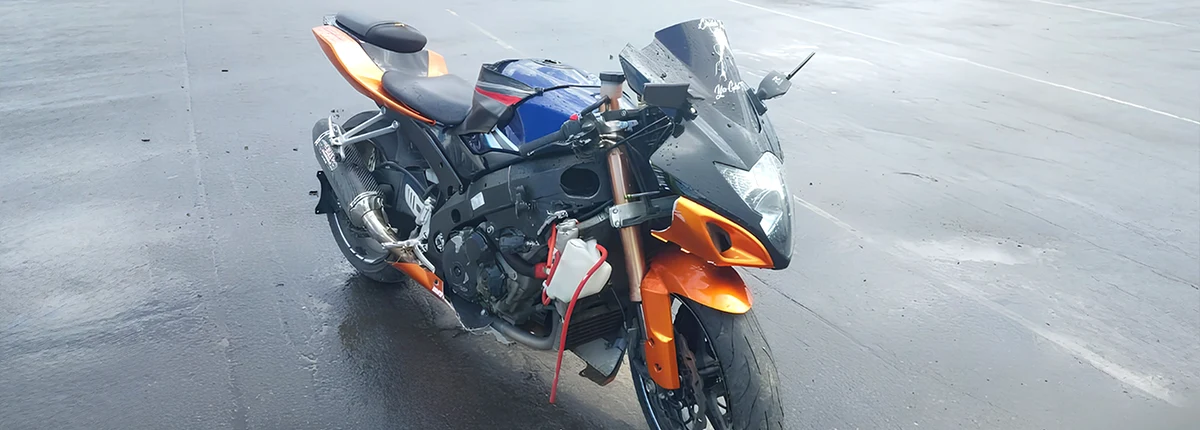
Why Sell Your Damaged GSX Instead of Repairing It?
For most owners, selling a wrecked GSX simply makes more financial sense than repairing it. Repair bills for serious damage – new fairings, welding a frame, fixing engine internals – can cost thousands of dollars. By contrast, selling as-is often costs nothing (no towing or commission). Consider:
- Repair Costs vs. Value: If the bike were totaled, insurers typically calculate it as such when repair estimates hit ~70% of its value. At that point, you’d pay more in parts and labor than the bike is worth. Selling instead of fixing means you keep more cash.
- Avoid Hidden Problems: Even after repair, a previously wrecked bike may have lingering issues (misaligned suspension, electrical quirks, etc.). Selling spares, you take the risk and hassle of chasing down problems.
- Time and Effort: Rebuilding a wrecked motorcycle is time-intensive and may involve sourcing rare parts. Selling is quick: just get a quote and pick up.
- Insurance Settlement: If you have insurance, sometimes they pay you the total-loss value, plus let you keep the bike. In this case, you benefit by selling the bike and keeping the insurance payout.
- No Repair Bills: The Bike Buyers emphasize that when you sell to them, there are “no repair bills, no guesswork, whether your bike is running or not. They handle all the work.
If your GSX is heavily damaged, spending more on it often isn’t worth it. Sellers who have tried both routes report that getting cash fast beats months of negotiation with shops or online buyers, and selling as-is means free pickup and immediate cash, with none of the ongoing costs (storage, insurance, maintenance) of holding onto a broken bike.
Major Suzuki GSX Models Explained
Suzuki’s GSX lineup has several key models. Below is a quick overview of the main ones and what to expect when selling them “as is”.
Suzuki GSX-R1000
The GSX-R1000 is Suzuki’s flagship liter-class sportbike. It replaced the GSX-R1100 in 2001 with a ~1000cc liquid-cooled inline-four engine. Over the years, it has evolved (with updated chassis and electronics), but its core appeal is high power and racetrack performance. Because of its popularity, spare parts like the engine, wheels, brakes, and fairings are in high demand.
Common issues on older R1000s may include worn-out throttle body/fuel injection pieces or corroded body panels, but a straight engine or undamaged wheels can still sell for a premium. If the engine has damage (knock or seized cylinders), it still has value for rebuilders. In short, even a “wrecked GSX-R1000” can be worth several hundred dollars, especially if it has a salvageable engine or intact chassis.
Suzuki GSX-R750
The GSX-R750 is a smaller-displacement GSX super-sport introduced in 1984 (for the 1985 model year). Over its lifetime, it has earned a legendary reputation for agility. The modern GSX-R750 (similar to the 1000 but slightly tuned down) shares many parts with its bigger sibling. Because 750cc parts are in high demand too, engines and electronics from these are valuable.
On older models, carbureted engines or earlier suspension can need work, but even a non-running GSX-R750 has scrap value for its frame, wheels, and cockpit. If your GSX-R750 has a damaged engine, note that replacement motors for 750s are usually cheaper than 1000s, so that the payout might be lower, but you still get a fair cash offer for the remaining parts.
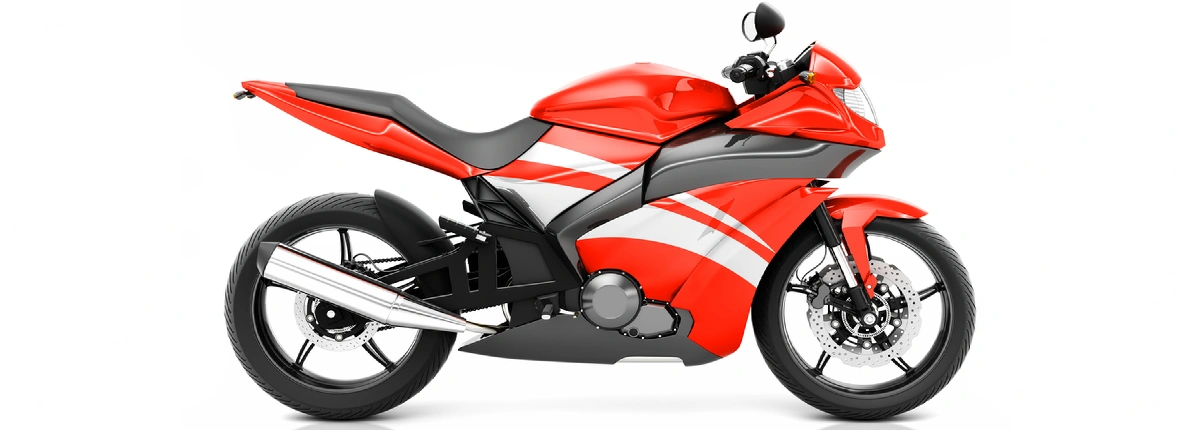
Suzuki GSX-8S (GSX-800) and Other GSX Variants
The newest GSX models are middleweight “streetfighter” versions. In 2023, Suzuki introduced the GSX-8S (also called GSX-800) – a new 776cc parallel-twin naked bike – along with a faired GSX-8R. These share some parts with the GSX-S750 but have updated electronics. As a newer model, a wrecked GSX-8S may fetch less on the parts market simply because fewer buyers exist.
However, its engine and frame are modern and strong, so salvage yards still pay for those components. Other GSX models include the GSX-S750 (streetfighter) and GSX-S1000. The Bike Buyers will “buy all bikes, ATVs, UTVs, and trikes that are wrecked, damaged, or totaled (running or not), ” covering these newer GSX variants. In practice, selling a crashed GSX-8S or GSX-S750 would follow the same process – contact a buyer for a quote, and they’ll value the salvageable parts.
Any major GSX model (R1000, R750, 8S, etc.) can be sold as-is. Typically, higher-displacement models yield higher offers because their parts are costlier. When you call or fill out a quote form, the buyer considers year, mileage, and visible damage. Even if your GSX has a broken engine or frame, there’s value in the rest – electronics, suspension, wheels, and bodywork – which The Bike Buyers know how to assess quickly.
How to Sell Your Wrecked Suzuki GSX (Process Overview)
Selling your damaged GSX to a nationwide buyer is straightforward:
- Get a Quote: The first step is to contact the buyer. The Bike Buyers, for example, have an online form and toll-free line. Simply describe your Suzuki GSX (year, model, condition) and they’ll give you a fair offer. As their site explains, you “complete the ‘Get a Quote’ form or call to sell your motorcycle today”.
- Discuss Price: Based on the bike’s damage and parts, you and the buyer agree. There’s no obligation to pay any fees. Often, the buyer emphasizes a fair price with no towing costs. If you accept, they schedule a pickup.
- Free Pickup & Payment: The buyer arranges free transportation. The Bike Buyers assure sellers they will “receive your payment and free vehicle removal the same day in any city in the USA”.
In practice, this means their team arrives, pays you in cash or check on the spot, and takes the bike away – all on the same day. No additional paperwork is needed beyond proof of ownership (title/VIN).
This three-step process (quote → price agreement → pickup & pay) is designed to be quick and painless. Because the buyer handles the logistics, you avoid hassles like negotiating with private buyers or advertising the bike. The Bike Buyers emphasize they can handle unusual cases, since they have “350 offices throughout the USA” and 25 years’ experience. Essentially, you turn your wrecked GSX into cash without lifting a wrench.
What Buyers Like Us Look For
When a buyer says “we buy damaged GSX bikes”, they consider everything from light dings to total loss. Key points they check include:
- Extent of Accident Damage: Bikes with minor collision damage (scratched bodywork, bent levers) are straightforward. Heavier damage – cracked frame, bent forks, or a dislodged engine – is noted. The Bike Buyers explicitly list “Light, Moderate, and Severe Crash Damage” among acceptable conditions. Even flood or fire damage and salvage title bikes are on the list.
- Mechanical Condition: They check if the engine turns over, if it’s seized or knocking, and if the transmission works. Their criteria say they buy bikes needing “All Major Repairs”, even if “your vehicle does not run. Key red flags like a completely seized engine or snapped crankshaft reduce value, but a seized motor often has parts that can be salvaged (cylinders, heads, clutch).
- Bike Title/Registration: Legal cleanliness matters. Most reputable buyers require a proper title (even if “salvage”). The Bike Buyers note they accept “Motorcycles with Salvage Titles”, which means you can sell even a totaled-insurance bike as long as you have title papers. Provide VIN and title upfront for an accurate quote.
- Model and Year: Certain GSX models and years fetch more. A high-end model like a limited-edition GSX-R1000 or newer GSX-8S can bring more money, simply because parts are newer or rarer. But buyers will take any year model, as they service the entire GSX family.
- Missing Parts: If key parts are missing (wheels, fairings, or the engine itself), this lowers the offer. Buyers pay most for complete major assemblies. Entirely stripped bikes are still bought as “parts only,” but at a reduced price.
- Mileage and Service History: While not critical, a well-maintained GSX might nudge the offer up slightly. Low miles suggest less wear on the engine and transmission, which buyers appreciate when selling the machine or parts to end users.
In short, reputable buyers like The Bike Buyers want the details. They will ask how damaged the bike is and how complete it is. But they clarify: “Whether or not you have insurance, we can buy your motorcycle without you having to go through the hassle of getting it fixed. The overriding message is: don’t worry if your GSX is “hurt” – if it has any working parts at all, they’ll factor those into the offer.
FAQs
Can I sell my heavily damaged Suzuki GSX-R1000 or GSX-R750 for cash?
Yes. Buyers like The Bike Buyers purchase all GSX models in any condition. They explicitly say they “buy all bikes… that are wrecked, damaged, or totaled (running or not)”. You can get a cash offer even if your GSX is non-running or has a damaged engine. The final price depends on your bike’s year, parts condition, and title status, but there is value in salvageable GSX parts.
Do I need a clean title for a wrecked GSX?
While a title is typically required to finalize any sale, many buyers accept salvage title bikes, too. The Bike Buyers note that they buy “Motorcycles with Salvage Titles”. You should have the title (or the VIN paperwork) available. Contact the buyer to clarify title needs in your state, but having documentation will speed up the process.
How do I sell my wrecked Suzuki GSX-R1000 to The Bike Buyers?
The process is simple. You can fill out a free online quote form on their website or call their number (877-751-8019). Provide details about your GSX (make, model, year, mileage, damage). They’ll offer a cash price. If you agree, they arrange free pickup and pay you on the spot – as their site promises, “receive your payment and free vehicle removal the same day”.
How much will I get for a damaged GSX?
The payout varies. It depends on your GSX’s model year, what parts are still good, and the market demand for them. For example, a late-model GSX-R1000 with an intact engine and wheels will draw a higher offer than an older GSX-8S with missing parts. Typically, the best way to know is to get a quote from the buyer; they will evaluate each part’s value. Remember, even if your bike itself isn’t worth as much, parting it out yourself (selling engine, wheels, etc.) usually totals less than a single lump-sum cash sale would.
Is selling a wrecked GSX to The Bike Buyers better than trying to fix it?
In most cases, yes. If your GSX needs thousands in repairs, selling for cash avoids that expense. The Bike Buyers highlight that there are “no repair bills, no guesswork” with them. You don’t have to pay for towing, parts, or labor. You simply hand over the keys and get paid. Many sellers find this much quicker and more reliable than repairing and selling the bike privately.
Get Cash for Your Wrecked Suzuki GSX Today
Don’t let your damaged GSX-R1000, GSX-R750, or GSX-8S collect dust. Turn it into instant cash with a buyer who specializes in wrecked bikes. Customers nationwide trust The Bike Buyers to pay top dollar for wrecked, non-running, and even totaled GSX motorcycles. Start by calling 877-751-8019 or filling out their online quote form. You’ll get a fast, fair offer and a guaranteed same-day pickup with payment. Get ahead of costly repairs and hours of listing hassles – sell your wrecked Suzuki GSX for a hassle-free cash transaction today!

